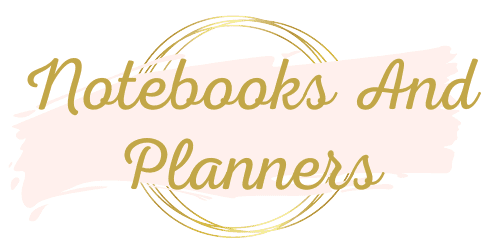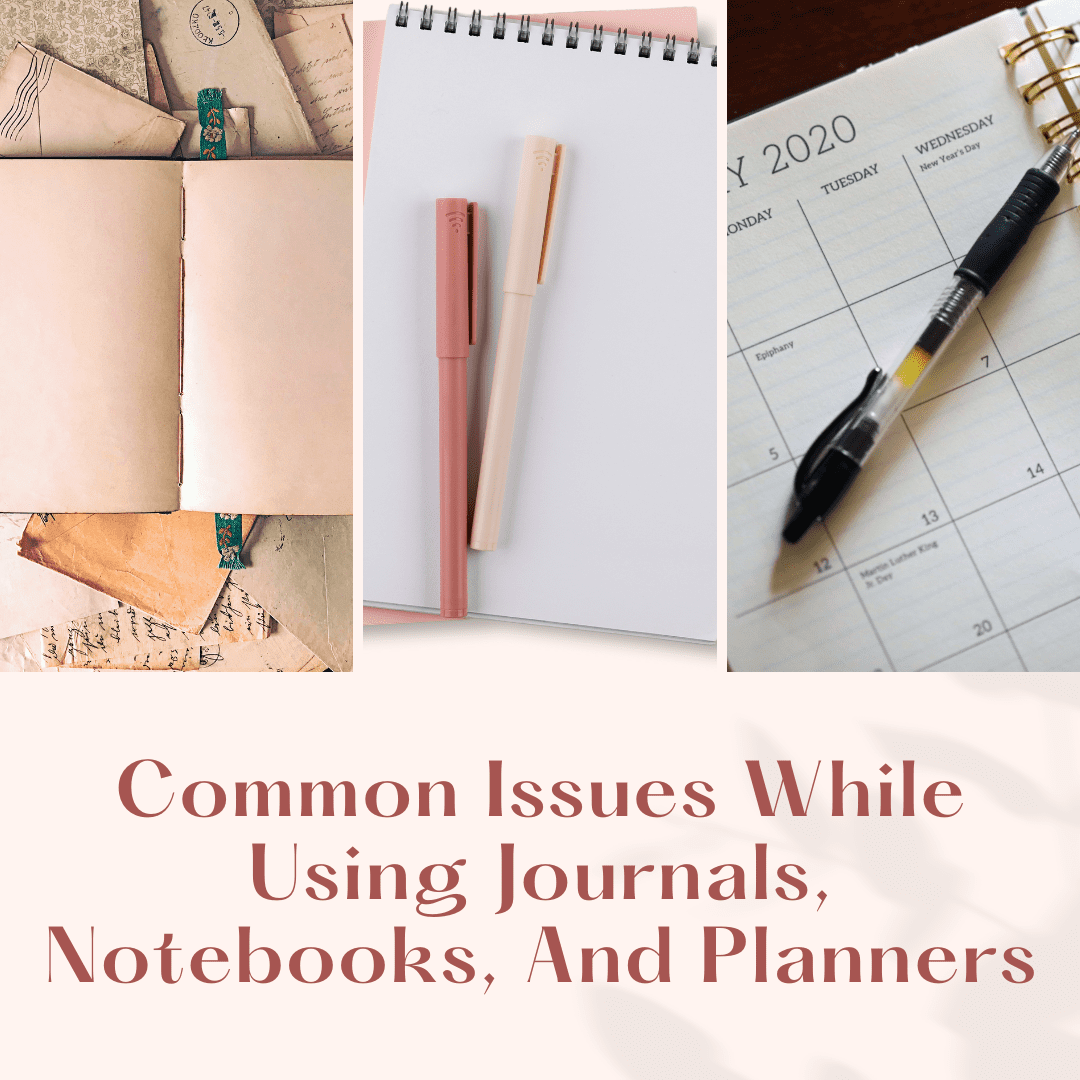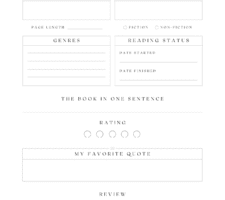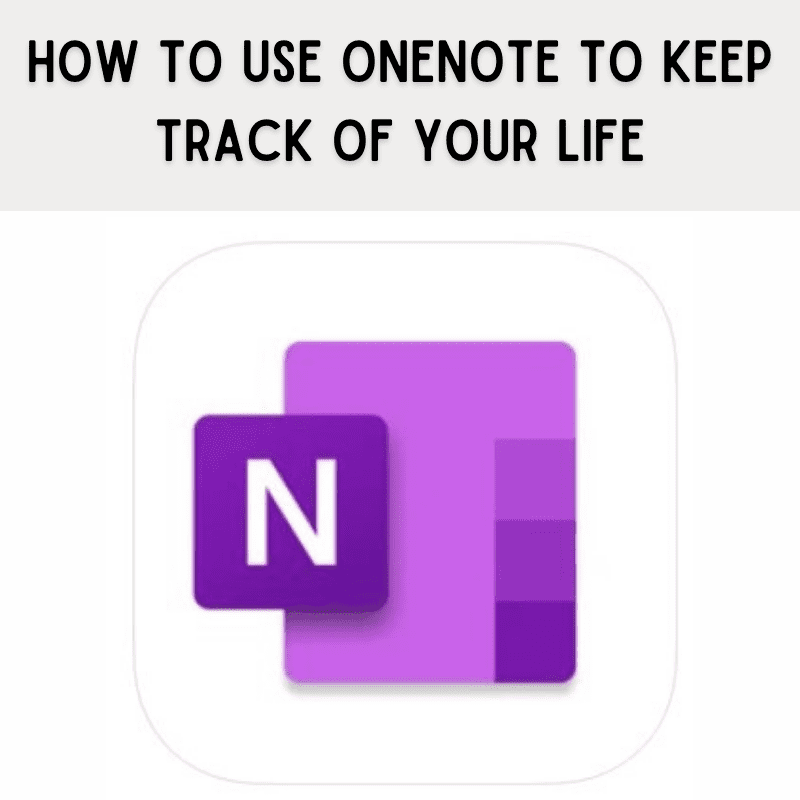Last Updated on December 8, 2023 by Jen
Journals, notebooks, and planners are supposed to be useful and fun. But sometimes we can become too obsessive about various aspects, and it stops being fun and useful to use these tools and starts being stressful and counterproductive. If you feel like journals, notebooks, or planners have become more of a chore or lost their zest, then read on to find out why and how you can fix it.
The 7 Biggest Issues That Occur With Journals, Notebooks, And Planners
The chances are good that if using journals, notebooks, or planners has lost its fun or usefulness, or become very stressful, one of the following issues is occurring.
1. Obsession with uniformity
The pursuit of uniformity can sometimes take over even the most enjoyable activities in our lives.
For instance, in the realm of journaling, many individuals feel compelled to have every page look the same, with each entry having the same rigorously followed format. Or they want each notebook to look exactly the same so that when they stack them together, they look perfectly uniform.
This desire for perfect uniformity can lead to a lack of creativity, spontaneity, and ultimately, enjoyment.
Additionally, the pressure to adhere to a certain format can cause a decrease in productivity as the individual may become so preoccupied with making their entry “perfect”, that they forget to actually utilize the planner for its intended function – organizing one’s life.
A more fluid approach to journaling may lead to greater exploration of ideas, emotions and memories, which in the long term, can lead to a more fulfilling experience.
2. Insistence on perfection
Many of us have fallen into the trap of insisting on perfection when it comes to journaling, note-taking and planning. We want everything to be just so, but this often results in a lack of fun and productivity.
For instance, spending hours choosing the perfect notebook or planner can leave us feeling overwhelmed and unproductive.
Similarly, obsessing over the way we write or format our notes can become a daunting task, ultimately leading to a lack of enjoyment and a loss of focus in our work.
As the old saying goes, “Perfection is the enemy of progress.” It’s time to loosen up a bit and embrace the imperfections. Whether it’s scribbles, typos, or crooked lines, errors represent a symbol of growth and learning.
3. Over-Organization
Have you ever been so excited to start using a new journal or planner, but found yourself quickly losing interest? It’s possible that over organization is to blame. When we spend too much time trying to perfect our system and feel the pressure to fill every page, it can become a chore rather than an enjoyable task.
We may find ourselves avoiding our journal or planner altogether, leading to a lack of productivity and even guilt.
Additionally, a rigid system can limit creativity and spontaneity. For example, if we plan out every minute of our day in advance, we may miss out on opportunities for new experiences or unexpected detours.
4. Inflexibility with format or layout
If a planner only allows for a rigid structure of to-do lists and appointments with no room for creativity or free space, it can become a source of stress rather than assistance.
Similarly, a journal may be restrictive in terms of the type of content that can be included, causing writers to feel limited and discouraged.
Inflexible notebooks may also result in a lack of productivity; if the format does not suit an individual’s needs, they may not be inclined to use it at all.
5. Strict adherence to a specific brand
Adhering too strictly to a specific brand of journal, notebook, or planner can actually result in a lack of both productivity and fun.
While it’s tempting to stick with what we know, being too rigid in this sense can stifle creativity, inspiration, and motivation.
For example, if you exclusively use one brand of planner for years on end, you may find yourself becoming bored with the format and unable to come up with new ideas for organizing your life.
Alternatively, if you limit yourself to a specific type of notebook for writing or brainstorming, you may miss out on the opportunity to explore different styles and techniques for expressing yourself.
6. Overemphasis on aesthetics
Writing in a journal or planner can be a helpful tool for productivity and improving mental wellbeing. However, a focus solely on aesthetics can come at a cost.
Spending too much time on making every page picture-perfect can take away from the fun and creativity of using these tools. It can become overwhelming and a chore rather than an enjoyable activity.
For example, a person may spend hours adding stickers and perfecting their handwriting in their planner, leaving little time for actually planning out their tasks. This can lead to a lack of productivity and defeat the purpose of having a planner in the first place.
It’s important to remember that while aesthetics can be enjoyable, the function and purpose of these tools are the most important aspect.
7. Reluctance to adapt
Journaling, note-taking, and planning are all great ways to boost productivity and stay organized. However, when we develop a reluctance to adapt to new methods or tools, it can hinder our ability to make the most of these practices.
For instance, if you’ve always been accustomed to using a paper planner, switching to a digital one may seem like a daunting task. However, not being able to access your planner on the go, or set reminders for upcoming tasks can cause unneeded stress and inefficiencies.
Similarly, if you’re hesitant to try a new journaling method, you may miss out on the benefits that come with exploring different formats and prompts.
5 Tips To Overcome Issues That Are Making Your Journals Less Fun
Journaling is supposed to be a fun and creative outlet, not a source of stress or dissatisfaction. If you find yourself struggling with certain aspects of journaling or planning that are affecting your enjoyment, here are some tips to help overcome those issues:
- Remember the purpose – Stop striving for perfection and instead focus on using your journal for memory keeping or working on personal growth.
- Limit time spent on aesthetics – While it’s fun to design and customize, don’t let it consume all of your time and attention. Set a time limit for decorating and stick to it.
- Embrace change – Don’t be afraid to try new methods or journals, even if they may seem intimidating at first. You never know what may work best for you until you give it a chance.
- Practice self-compassion – If you miss a day of journaling or don’t complete a task in your planner, don’t beat yourself up about it. Instead, use that as an opportunity to learn and adjust for the future.
- Find inspiration from others – Don’t be afraid to look to others for ideas and motivation. Follow journaling accounts on social media or join online communities to connect with like-minded individuals.
6 Tips To Overcome Issues That Are Making Your Notebooks Less Fun
Notebooks are meant to be a useful tool, not a burden. If you’re feeling overwhelmed or frustrated with certain aspects of using notebooks for organization or note-taking, here are some tips to help overcome those issues:
- Simplify your system – Maybe having too many notebooks is causing confusion and disorganization. Consider combining them into one or two multi-functional notebooks.
- Use fun and colorful supplies – Instead of focusing on making everything uniform, add some excitement to your notebooks with bright pens, stickers, or washi tape.
- Incorporate creativity – Allow yourself to use your notebook as a creative outlet instead of just a functional tool. Write down quotes or lyrics that inspire you, doodle in the margins, or add photos or ticket stubs from memorable events.
- Take breaks – If you find yourself getting too caught up in making everything perfect, take a step back and give yourself a break. Go for a walk, meditate, or do something else to clear your mind and come back to your notebook with fresh eyes.
- Remember the purpose – Always keep in mind that the purpose of using notebooks is to help you stay organized and capture important information. Don’t let the pressure of making everything look a certain way take away from the main goal.
- Embrace imperfections and focus on functionality over aesthetics.
5 Tips To Overcome Issues that Are Making Your Planners Less Effective
Lastly, planning is meant to reduce stress and increase productivity, not cause more anxiety. If you’re feeling too rigid or overwhelmed with your planning system, here are some tips to help overcome those issues:
- Let go of perfection – Planning can become less enjoyable when we put pressure on ourselves to make everything perfect. Instead, embrace the imperfections and focus on progress rather than perfection.
- Be flexible – Don’t be afraid to make changes to your planning system if it’s not working for you. It’s okay to experiment and find what works best for your individual needs.
- Use different methods – Don’t limit yourself to just one type of planner or organization method. Consider using a combination of digital and paper planners, or try out bullet journaling for a more personalized approach.
- Prioritize tasks – Don’t try to fit everything into your planner. Instead, focus on the most important tasks and let go of lesser priorities. This will help reduce overwhelm and make your planning process more effective.
- Celebrate small wins – Planning can become less motivating when we don’t see immediate results. Remember to celebrate even the smallest accomplishments to stay motivated and on track.
Final Thoughts
Don’t let the pressure of making everything look or be a certain way take away from the main goal of planners, notebooks, and journals – to reduce stress, enable personal growth, and increase productivity.
Embrace imperfections, be flexible, experiment with different methods, and prioritize tasks to make your process more effective.
And most importantly, don’t forget to appreciate how these journals, notebooks, and planners are impacting your life positively.





